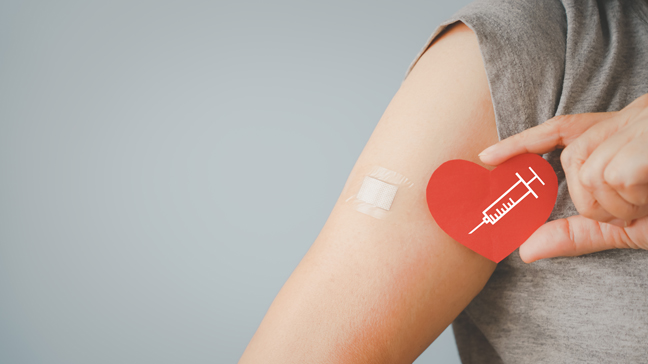- Diseases
- Acoustic Neuroma (14)
- Adrenal Gland Tumor (24)
- Anal Cancer (66)
- Anemia (2)
- Appendix Cancer (16)
- Bile Duct Cancer (26)
- Bladder Cancer (68)
- Brain Metastases (28)
- Brain Tumor (230)
- Breast Cancer (718)
- Breast Implant-Associated Anaplastic Large Cell Lymphoma (2)
- Cancer of Unknown Primary (4)
- Carcinoid Tumor (8)
- Cervical Cancer (154)
- Colon Cancer (164)
- Colorectal Cancer (110)
- Endocrine Tumor (4)
- Esophageal Cancer (42)
- Eye Cancer (36)
- Fallopian Tube Cancer (6)
- Germ Cell Tumor (4)
- Gestational Trophoblastic Disease (2)
- Head and Neck Cancer (6)
- Kidney Cancer (124)
- Leukemia (344)
- Liver Cancer (50)
- Lung Cancer (288)
- Lymphoma (284)
- Mesothelioma (14)
- Metastasis (30)
- Multiple Myeloma (98)
- Myelodysplastic Syndrome (60)
- Myeloproliferative Neoplasm (4)
- Neuroendocrine Tumors (16)
- Oral Cancer (100)
- Ovarian Cancer (170)
- Pancreatic Cancer (164)
- Parathyroid Disease (2)
- Penile Cancer (14)
- Pituitary Tumor (6)
- Prostate Cancer (144)
- Rectal Cancer (58)
- Renal Medullary Carcinoma (6)
- Salivary Gland Cancer (14)
- Sarcoma (236)
- Skin Cancer (296)
- Skull Base Tumors (56)
- Spinal Tumor (12)
- Stomach Cancer (60)
- Testicular Cancer (28)
- Throat Cancer (90)
- Thymoma (6)
- Thyroid Cancer (98)
- Tonsil Cancer (30)
- Uterine Cancer (78)
- Vaginal Cancer (14)
- Vulvar Cancer (18)
- Cancer Topic
- Adolescent and Young Adult Cancer Issues (20)
- Advance Care Planning (10)
- Biostatistics (2)
- Blood Donation (18)
- Bone Health (8)
- COVID-19 (362)
- Cancer Recurrence (120)
- Childhood Cancer Issues (120)
- Clinical Trials (628)
- Complementary Integrative Medicine (24)
- Cytogenetics (2)
- DNA Methylation (4)
- Diagnosis (230)
- Epigenetics (6)
- Fertility (64)
- Follow-up Guidelines (2)
- Health Disparities (14)
- Hereditary Cancer Syndromes (124)
- Immunology (18)
- Li-Fraumeni Syndrome (8)
- Mental Health (118)
- Molecular Diagnostics (8)
- Pain Management (62)
- Palliative Care (8)
- Pathology (10)
- Physical Therapy (18)
- Pregnancy (18)
- Prevention (898)
- Research (392)
- Second Opinion (74)
- Sexuality (16)
- Side Effects (604)
- Sleep Disorders (10)
- Stem Cell Transplantation Cellular Therapy (216)
- Support (404)
- Survivorship (322)
- Symptoms (184)
- Treatment (1776)
What’s safe for vaccinated cancer patients?
3 minute read | Published March 10, 2021
Medically Reviewed | Last reviewed by an MD Anderson Cancer Center medical professional on March 10, 2021
When the Centers for Disease Control and Prevention (CDC) updated its guidelines earlier this month for those who’ve gotten vaccinated against COVID-19, many breathed a sigh of relief.
Finally, after almost a full year of social distancing, hand-washing, and wearing masks, the CDC said it was OK for individuals who are fully vaccinated against COVID-19 to spend time with other family members and friends — under certain limited conditions.
But what do the new guidelines mean for current and former cancer patients? And how do they apply to anyone who is immunocompromised?
“If you are a current cancer patient or immunocompromised, the short answer is that nothing has changed,” says Chief Infection Control Officer Roy Chemaly, M.D. “Even if you are fully vaccinated, you cannot let your guard down.”
Why cancer patients should remain vigilant even after receiving a COVID-19 vaccine
The reason for Chemaly’s caution is simple: while all three COVID-19 vaccines with emergency use authorization provide some level of protection against both a severe case of COVID-19 and the possibility of hospitalization or death because of it, none of them offers absolute protection against infection. That means some small degree of risk still exists, even if you’ve been fully vaccinated.
“And, because cancer patients’ immune systems may not be up to par, they may not respond the same way as the average person’s,” says Chemaly. “So, they may not be as protected as healthier individuals and they may still develop symptomatic COVID-19.”
Also, because the SARS-CoV-2 (coronavirus) is still so new, much remains uncertain — including whether fully vaccinated people can develop mild or asymptomatic COVID-19 infections.
“We know the vaccines protect most people from severe infection and hospitalization, but not necessarily mild or asymptomatic cases,” Chemaly says. “The data looks good so far, but we just don’t know yet.”
What this means for current and former cancer patients
So, what does all of this mean for you?
If you’re a former cancer patient who’s no longer in active treatment and you’re not considered immunocompromised, you can follow the CDC’s new guidelines:
- You may visit with other people indoors, without wearing a mask, if everyone present has been fully vaccinated. Fully vaccinated means it’s been at least two weeks since someone has received either the second dose of the Pfizer or Moderna vaccine or the single dose of Johnson & Johnson’s Janssen vaccine.
- You may spend time unmasked indoors with a small group of unvaccinated people from another household, provided none of them are at increased risk, and you’ve been fully vaccinated.
If you’re a current cancer patient, it means you should stay the course, and continue doing everything you’ve been doing for the past year to safeguard your health, including:
- Wearing a mask in public
- Keeping your distance from anyone who doesn’t live with you
- Washing your hands frequently
- Postponing non-essential business and leisure travel
“It’s rare, but we are seeing some cancer patients diagnosed with COVID-19 even after vaccination,” Chemaly says. “So, you have to be vigilant. We’re not out of the woods yet.”
Request an appointment at MD Anderson online or by calling 1-833-471-1682.
Related Cancerwise Stories

We’re not out of the woods yet.
Roy Chemaly, M.D.
Chief Infection Control Officer





